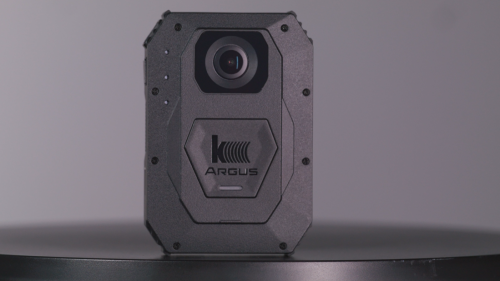By Ashraf Khalil and Alanna Durkin Richer,
Associated Press
WASHINGTON — The Trump administration, stepping up its crackdown on policing in the nation’s capital, on Thursday named the head of the Drug Enforcement Administration to be Washington’s “emergency police commissioner” with all the powers of the police chief — a significant move that increases national control over the city as part of the federal government’s law-enforcement takeover.
Attorney General Pam Bondi said in a directive issued Thursday evening that DEA boss Terry Cole will assume “powers and duties vested in the District of Columbia Chief of Police.” The Metropolitan Police Department “must receive approval from Commissioner Cole” before issuing any orders, Bondi said. It was not immediately clear where the move left Pamela Smith, the city’s current police chief, who works for the mayor.
| READ NEXT: Federal surge in D.C.: How it works and the history behind it
D.C. Attorney General Brian Schwalb responded late Thursday that Bondi’s directive was “unlawful,” arguing that it could not be followed by the city’s police force. “Therefore, members of MPD must continue to follow your orders and not the orders of any official not appointed by the Mayor,” Schwalb wrote in a memo to Smith, setting up a potential legal clash between the heavily Democratic district and the Republican administration.
Washington Mayor Muriel Bowser wrote on social media that “there is no statute that conveys the District’s personnel authority to a federal official.”
Bondi’s directive came hours after Smith directed MPD officers to share information with immigration agencies regarding people not in custody — such as someone involved in a traffic stop or checkpoint. The Justice Department said Bondi disagreed with the police chief’s directive because it allowed for continued enforcement of “sanctuary policies.”
Bondi said she was rescinding that order as well as other MPD policies limiting inquires into immigration status and preventing arrests based solely on federal immigration warrants. All new directives must now receive approval from Cole, the attorney general said.
The late-night announcement came after an eventful day in the ongoing federal operation. Smith’s earlier directive effectively brought together Trump’s moves on city law enforcement and his nationwide efforts to curb immigration, and Trump had praised it in the hours before Bondi’s announcement.
“That’s a very positive thing, I have heard that just happened,” Trump said of Smith’s order. “That’s a great step. That’s a great step if they’re doing that.”
The heightened security presence was visible in neighborhoods and venues across the city following Trump’s directive. National Guard troops watched over some of the world’s most renowned landmarks and Humvees took position in front of the busy main train station. Volunteers helped homeless people leave long-standing encampments.
Trump has the power to take over federal law enforcement for 30 days before his actions must be reviewed by Congress, though he has said he’ll re-evaluate as that deadline approaches.
The response before Thursday had been gradual and, by all appearances, low-key. But on Wednesday night, officers set up a checkpoint in one of D.C.'s popular nightlife areas, drawing protests. The White House said 45 arrests were made Wednesday night, with 29 people arrested for living in the country illegally; other arrests included for distribution or possession of drugs, carrying a concealed weapon and assaulting a federal officer.
| SURVEY: 🕒🛡️What’s the best shift length for policing? We want your input
Troops were stationed outside the Union Station transportation hub as the 800 Guard members who have been activated by Trump start in on missions that include monument security, community safety patrols and beautification efforts, the Pentagon said.
“They will remain until law and order has been restored in the District as determined by the president, standing as the gatekeepers of our great nation’s capital,” Pentagon press secretary Kingsley Wilson said. “The National Guard is uniquely qualified for this mission as a community-based force with strong local ties and disciplined training.”
Wilson said the troops won’t be armed and declined to give more details on what the safety patrols or beautification efforts would entail or how many Guard members have already been sent out on the streets.
National Guard Major Micah Maxwell said troops will assist law enforcement in a variety of roles, including traffic control posts and crowd control. The Guard members have been trained in de-escalation tactics and crowd control equipment, Maxwell said.
The White House said Thursday that Guard members aren’t making arrests but are “protecting federal assets, providing a safe environment for law enforcement officers to make arrests, and deterring violent crime with a visible law enforcement presence.”
National Guard troops are a semi-regular presence in D.C., typically being used during mass public events like the annual July 4 celebration. They have regularly been used in the past for crowd control in and around Metro stations.
Trump on Thursday denied that the federal law enforcement officials he sent into Washington’s streets to fight crime have been diverted from priority assignments like counterterrorism. Asked if he was concerned about that, Trump said he’s using a “very small force” of soldiers and that city police are now allowed to do their job properly amidst his security lockdown.
___
Associated Press journalists Jacquelyn Martin, Mike Pesoli, Darlene Superville and David Klepper contributed to this report. Police1 Staff also contributed.







